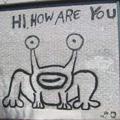Jim Brown reviewed The Dawn of Everything by David Graeber
An account of how unimaginative we seem to be at the moment
How else could we organize ourselves? How did we lose "the ability freely to recreate ourselves by recreating our relations with one another"?
This book gets into the weeds of anthropology and archaeology, but it's "zoom out" moments are really interesting. The Rousseau/Hobbes debate leaves out much and, they argue, makes everything much more boring than in actually is, given the actual data available about previous social arrangements.
How did we get stuck? We have forgotten that social organization have been a matter of play, tinkering, and sometimes is even dependent on things like seasonal changes. It feels like we are in the least playful and least imaginative epoch, succumbing to the ideology of Thatcher's "There is no alternative."
One interesting set of arguments in the book is about scale. Received wisdom says that structures of domination are tied to population scaling up. Larger, more dense populations …
How else could we organize ourselves? How did we lose "the ability freely to recreate ourselves by recreating our relations with one another"?
This book gets into the weeds of anthropology and archaeology, but it's "zoom out" moments are really interesting. The Rousseau/Hobbes debate leaves out much and, they argue, makes everything much more boring than in actually is, given the actual data available about previous social arrangements.
How did we get stuck? We have forgotten that social organization have been a matter of play, tinkering, and sometimes is even dependent on things like seasonal changes. It feels like we are in the least playful and least imaginative epoch, succumbing to the ideology of Thatcher's "There is no alternative."
One interesting set of arguments in the book is about scale. Received wisdom says that structures of domination are tied to population scaling up. Larger, more dense populations means complexity, which means hierarchy, and hierarchy becomes "chains of command," and thus the origins of the state. Thus, once populations grow, certain freedoms are left to the side. But the book questions this kind of story by pointing to any number of non-linear movements between systems of social organization that do not follow this pattern. This is the trick of the book - to tell the received story and then show how that story cannot account for a mountain of evidence that contradicts it. For instance, Bureacracy did not emerge in large communities to manage massive amounts of information but insted first emerged in small communities.
I almost wish there was a "pamphlet" version of this argument, one that left much of the anthropological record deep in footnotes (or just referred to this book) and hit all the high notes and "big" arguments.


